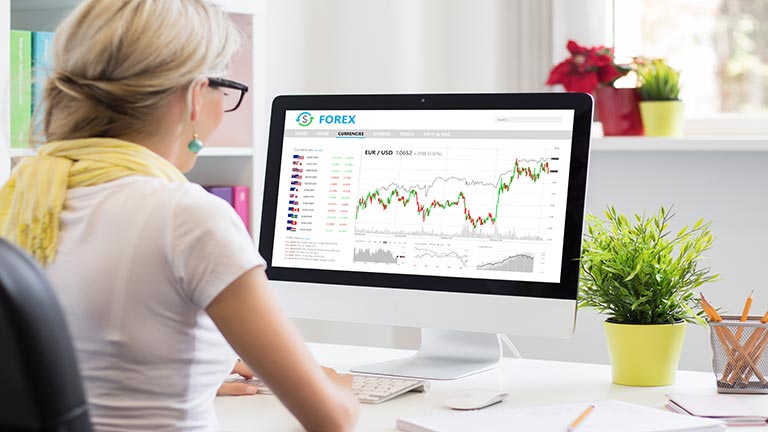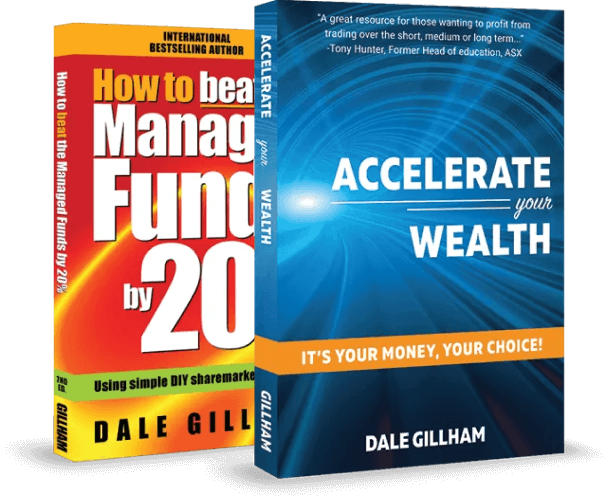Has the Stock Market Finally Stopped Falling?

By Dale Gillham
When the stock market rises everyone is happy and investors tend to invest more into stocks. But alarmingly, rather than investing directly, investors are choosing index tracking ETFs, so much so that we are seeing record levels of funds moving into these investments in much the same way we saw enormous sums of money move into managed funds prior to the GFC.
Are Index ETFs likely to crash in the next GFC?
With the Australian stock market falling around 17 per cent into June this year, investors became concerned about the possibility of a larger fall. These concerns have arisen again over the past few weeks with speculation of an impending crash. During times like this, investors often make emotional decisions based on fear rather than rational decisions.
It is very common for investors to look at short term returns and run for the hills if their investments are down or they switch funds, investment managers or exit the market altogether. History shows that investors tend to make these decisions at the wrong time and, in doing so, greatly affect their returns.
While we are seeing record levels of money moving into ETFs, especially index ETFs, we are not seeing an increase in borrowings that was prevalent in the previous year leading up to the GFC. Given this, I don’t believe we are near the point of any major meltdown on our market. As such, now is not the time to be changing investment strategies or making knee jerk reactions, as you might just find yourself missing opportunities when the market starts to rise.
My prediction is that over the next few years, we will see a snowball effect of money moving into index ETFs at unprecedented levels, as well as investors borrowing heavily to invest in these funds. This will significantly increase the speed of the snowball effect, which will be alarming in years to come. Many of you may remember during the GFC there were major concerns around index funds with many investors deserting them in droves after they fell heavily. Sadly, history is repeating itself and I can confidently say that Index ETFs will be at the forefront of the next major crash and not in a good way.
What were the best and worst performing sectors last week?
The best performing sectors included Materials up 5.13 per cent followed by Information Technology up 3.83 per cent and Healthcare 0.78 per cent. The worst performing sectors included Utilities down 1.95 per cent followed by Consumer Staples down 1.52 per cent and Financials down 0.89 per cent.
The best performers in the S&P/ASX top 100 stocks included Pilbara Minerals up 26.76 per cent followed by Mineral Resources up 21.80 per cent and Allkem up 20.83 per cent. The worst performing stocks included NextDC down 6.16 per cent followed by Bendigo and Adelaide Bank down 4.68 per cent and A2 Milk down 4.63 per cent.
What's next for the Australian stock market?
As expected, the All Ordinaries Index continued to fall last week for the third consecutive week with the index falling almost 6 per cent since 16 August to 6,947 points. Right now, I believe the move down may be over given that the market experienced a strong rise last Thursday and Friday with the All Ordinaries Index closing the week 1.17 per cent higher compared to the prior week. Although this is unconfirmed, the strong move late last week increases the probability that the down move may be over.
I mentioned in my previous report that I believed the market would most likely find support around 7,000 points and I still believe this given what occurred last week, as the market reversed after falling to 6,947 points. If the market has bottomed, as I suspect, then it will move up over the next four to eight weeks to erode most of the losses experienced this year. We may even see it challenge the all-time high of 7,956 points set back in January of this year.
Before you get too excited, the low is not yet confirmed, and we still need to assume the market will fall further until it confirms otherwise. We will know whether this is the case in the next few weeks, so I recommend investors sit tight until we can confirm a direction.
For now, good luck and good trading.
Dale Gillham is Chief Analyst at Wealth Within and international bestselling author of How to Beat the Managed Funds by 20%. He is also author of the bestselling and award winning book Accelerate Your Wealth—It’s Your Money, Your Choice, which is available in all good book stores and online.






